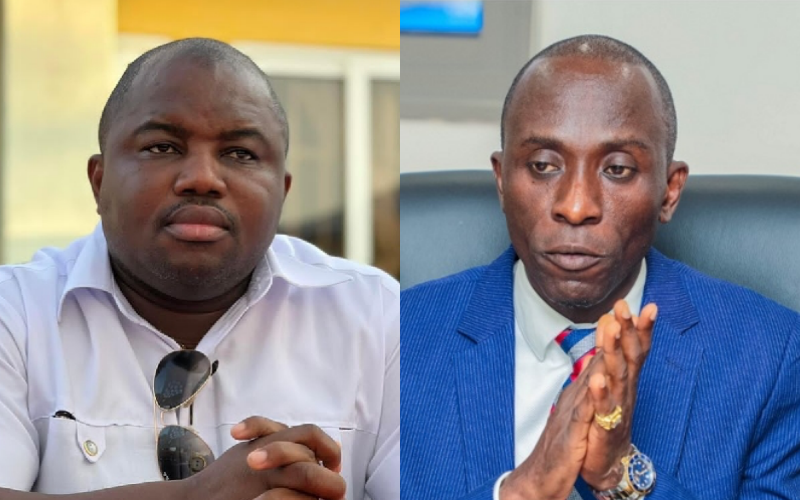The New Patriotic Party (NPP) finds itself embroiled in internal discord following accusations of selective disciplinary action, or rather the lack thereof, concerning Deputy National Communications Officer, Ernest Owusu Bempah Bonsu. Eric Nartey Yeboah, the Second Vice Chairman of the NPP in the Greater Accra Region, has publicly criticized the party’s national leadership for their perceived inaction against Owusu Bempah, alleging a double standard in the application of party discipline. This controversy underscores a deeper tension within the party, raising questions about loyalty, fairness, and the very principles that govern internal conduct.
Yeboah, also known as Chairman Dollar, contrasts the swift disciplinary action taken against former Dome-Kwabenya MP Adwoa Safo with the apparent leniency shown towards Owusu Bempah. This discrepancy, in his view, sends a damaging message to party members and undermines the integrity of the disciplinary process. He questions Owusu Bempah’s standing within the party, highlighting what he perceives as a lack of demonstrable loyalty and long-term commitment compared to other members who have faced disciplinary action. This raises the crucial question of what criteria are used to determine the severity of disciplinary measures and whether these criteria are applied consistently across the board.
Further fueling the controversy are Owusu Bempah’s alleged past political affiliations, specifically his connections to the National Democratic Congress (NDC) and former First Lady Nana Konadu Agyemang Rawlings. Yeboah’s allusion to these affiliations casts doubt on Owusu Bempah’s allegiance to the NPP and intensifies the scrutiny surrounding his actions. This raises the question of whether past political affiliations should be a factor in internal party disciplinary matters and whether such considerations are being applied fairly in this instance.
The heart of the current dispute lies in Owusu Bempah’s recent comments regarding Vice President Dr. Mahamadu Bawumia. While the exact nature of these comments remains unspecified in the provided text, they have evidently drawn considerable criticism, even from within the NPP. Yeboah points to the public disapproval expressed by respected party figures like Nana Akomea as evidence that Owusu Bempah’s statements were detrimental to the party’s interests. This highlights the internal divisions created by Owusu Bempah’s actions and the challenge the party faces in managing these dissenting voices.
The timing of this controversy is particularly sensitive for the NPP, as the party is currently undergoing a period of post-election reflection and restructuring. The 2024 elections have passed, and the party is likely evaluating its performance and strategizing for the future. In this context, Yeboah argues that maintaining consistent and impartial disciplinary procedures is paramount. He emphasizes the need for accountability and stresses that the party’s credibility rests on its ability to apply its rules fairly to all members, regardless of their position or perceived influence.
The ongoing dispute involving Owusu Bempah exposes underlying tensions within the NPP. Yeboah’s criticisms highlight concerns about the party’s commitment to fairness and consistency in its internal processes. The case also touches on sensitive issues of loyalty, past political affiliations, and the potential influence of individual actors within the party. As the NPP navigates the post-election landscape, addressing these concerns and ensuring transparency and accountability in its disciplinary actions will be crucial for maintaining party unity and rebuilding trust among its members. The controversy surrounding Owusu Bempah serves as a microcosm of the broader challenges facing the NPP as it seeks to regroup and chart its course for the future.














